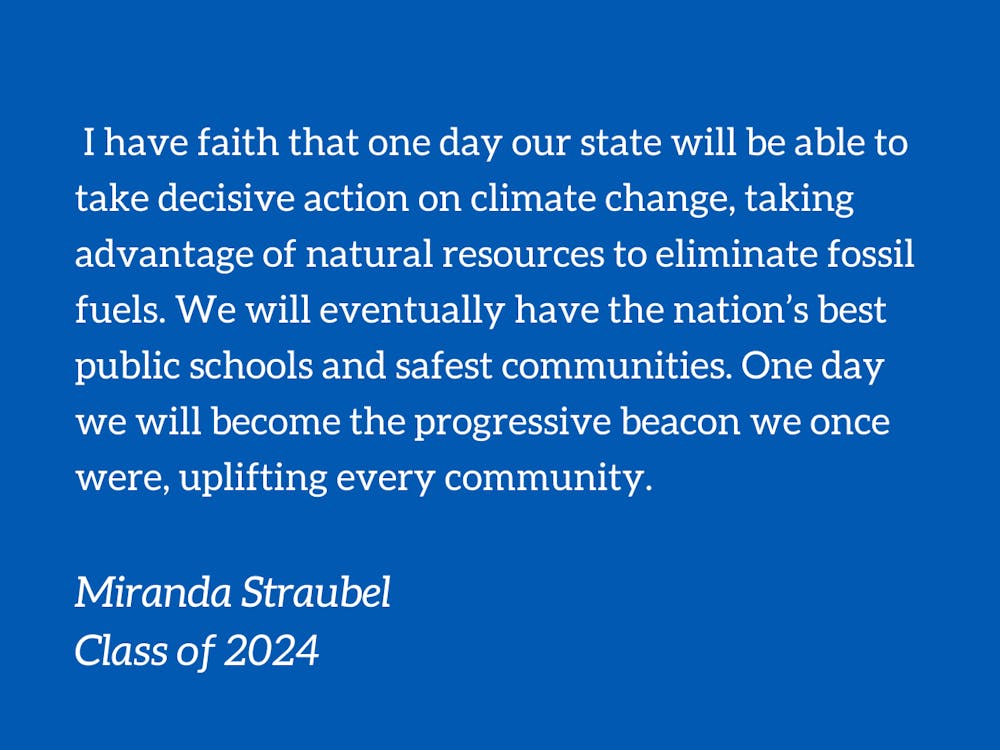When I was in fourth grade, during the year of Barack Obama’s disastrous midterm elections, I had a young conservative teacher whom I’ll call Mrs. S. Mrs. S. was gleeful the day after the midterms. She triumphantly announced to our class that the Republican Party gained control of both chambers of the NC General Assembly for the first time in over 100 years, but, she added with a morose tone, our US Representative David Price held onto his seat in Washington. David Price is a Democrat. Nine-year-old me noticed the partisanship, and I shot my arms up in a V-shape for victory. Since I was seated at the back of the class, no one but Mrs. S. could see me.
Although my moment of rebellion was fun, it did nothing to stop the ensuing onslaught of right-wing bills that the General Assembly began to pass ad nauseam. These backward laws included gems like House Bill 2, which required North Carolinians to use the bathroom that matches the gender on their birth certificates and cost the state billions of dollars, and the so-called “monster bill” that included many voting restrictions designed to disenfranchise black voters. Where North Carolina was once known as a relatively liberal southern state, our national reputation tanked among Democrats. Voters in the 2016 election chose Roy Cooper, a Democrat, to be our next governor, however. He was re-elected in 2020 and will be term-limited in the 2024 election. For now, though, Governor Cooper is the only person preventing further restrictions on North Carolinians because he is able to veto any bill the General Assembly passes. This veto power is the main reason why abortion is still legal here until 20 weeks.
If Republicans pick up only five total seats in the General Assembly in the November elections this year, they will obtain a supermajority and the ability to overturn any of Governor Cooper’s vetoes. The consequences would be catastrophic. Legislators could completely ban abortion, remove reasonable restrictions on gun owners, and force local law enforcement to cooperate with ICE, to name a few Republican legislative priorities. We as Duke students cannot become complacent. If you choose to vote in North Carolina, which I encourage you to do, you need to vote responsibly. By this I mean to look into the candidates in all the races, not just the flashy national races. Your votes have real consequences for North Carolinians.
While the best-case scenario for a better North Carolina would be to elect a Democratic majority to the General Assembly, this is unrealistic in this election. Republicans are infamous for their skillful use of gerrymandering based on race to increase the number of likely-Republican seats and decrease the number of likely-Democratic seats. Nevertheless, we can still envision a brighter future, one where courts strike down these gerrymandered maps and allow for fairer state representation. With a Democratic governor and a Democratic General Assembly, we could begin to undo the damages caused by several years of Republican policies, instead of simply preventing new bad policies. The North Carolina Democratic Party platform outlines numerous goals for the party in this circumstance.
We could finally implement the Leandro plan, which is currently tied up in the courts but calls for the state to properly fund a basic education for every child. We could afford to buy new textbooks and computers and fix our deteriorating school buildings. We could raise teacher pay to help alleviate the painful teacher shortage. In North Carolina, the state government funds a base pay, which is supplemented by local school districts and starts at $37,000 annually. Durham Public Schools pays an annual supplement of $6,450 for beginning teachers. Many other school districts cannot afford this generous supplement.
In this dream scenario, we could raise the state minimum wage, which currently amounts to poverty wages at $7.25 per hour. A living wage for one adult with no dependents in North Carolina is $17.14. We could improve our efforts to bring businesses back to North Carolina after many left the state during the years of Republican control. We could pass increased gun control legislation to help prevent shootings like the one at UNC-Charlotte three years ago. And, frankly, these efforts would merely catch us up to more progressive states.
While it can be easy to slip into despair over Republican actions, we should take this opportunity to dream of a brighter future. I have faith that one day our state will be able to take decisive action on climate change, taking advantage of natural resources to eliminate fossil fuels. We will eventually have the nation’s best public schools and safest communities. One day we will become the progressive beacon we once were, uplifting every community.
Miranda Straubel is a Trinity junior. Her column runs on alternate Thursdays.
Get The Chronicle straight to your inbox
Signup for our weekly newsletter. Cancel at any time.

